
On November 15th, Huawei’s series of themed public lectures “Growing in Guns, Rain, Rain, and Rain†was invited to Peking University, a famous 100-year institution. In the face of hundreds of North University students, Professor Tian Tao, Huawei's management consultant, delivered a keynote speech titled "Little People Create a Big History," a youth story, a glorification of the future, applause from the scene, and sparks of thought.
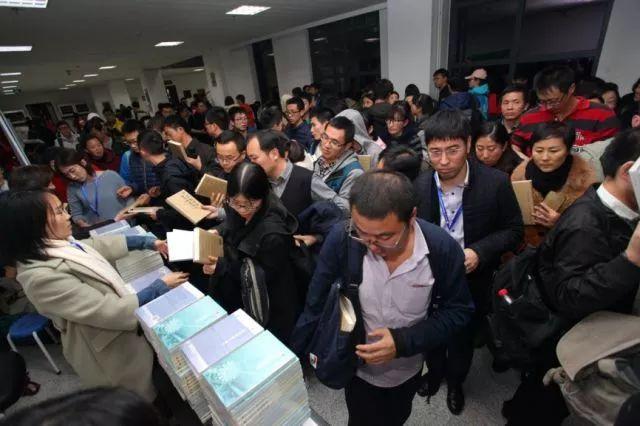
The following is a speech record:
Dear teachers, dear young friends, good evening everyone!
The topic of my exchange with you this evening is: "Small People Create Big History."
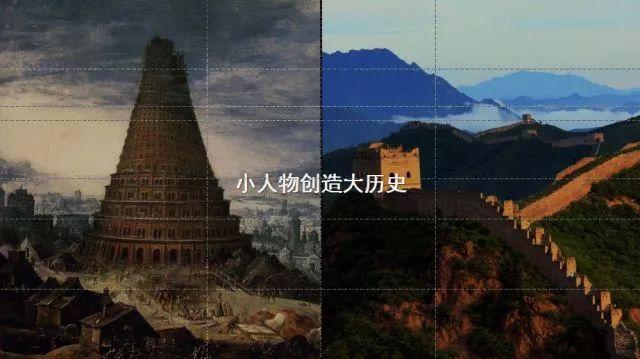
I started to observe and study Huawei from distance in 1999, including Huawei’s president Ren Zhengfei. In the past five years, I conducted a series of large-scale, multi-level interviews with Huawei. The number of visitors reached several hundred. The interviews were nearly 5 million words. In the 5 million-word interview, I had 30 years of Huawei A profound understanding: Huawei's 30 years is the long march of blood and tears.
Today, Huawei has market coverage in more than 170 countries and regions in the world. It can be said that there are people in the world where there are Huawei, and no one has the equipment and services provided by Huawei. Huawei today ranks 83rd in the Global 500.
First of all, let us go through the past to see how Huawei's 30 years came.

Cultural genes inherited by Huawei
In 1987, a middle-aged man who was forced to survive and desperately created Huawei Technologies Co., Ltd. in a simple residential building of Shenzhen Nanyou Group. The initial capital of RMB 21,000 was used by three employees. At first, he resold the switch equipment. For a living.
However, 43-year-old Ren Zhengfei, the son of a middle school principal in a remote county in Guizhou, has a mad ideal and ambition. Today, when we say that Ren Zhengfei is an idealist, some people may question that this is affixing gold to successful people. But when I talked to the older people of Huawei more than 20 years ago, I can clearly tell you that Ren Zhengfei was founded. In Huawei, although it was a “trafficking†trader, his ambition was more than making money. Earning money was a means of living, but it was also a tool for realizing his dreams and fulfilling his mission.
This is an aspiring middle-aged intellectual who has assembled a large group of young intellectuals with ideas. The age difference between Ren Zhengfei and his early followers is about 20 years old. Their common “sign tattoo†is Eight words: impoverished and ambitious.

They also have the following common characteristics:
I. Idealism Driven by Hunger
Ten years of the Cultural Revolution suppressed the ideals and dreams of innumerable intellectuals, countless young people, and even killed them. When the door to reform and opening up was launched, their long-cherished ideals, sense of mission, and passion, driven by a powerful sense of material and spiritual hunger, were greatly relieved. Liu Chuanzhi, Ren Zhengfei and many other prominent Chinese entrepreneurs began their entrepreneurial history under this psychological background. Most of the early followers of Ren Zhengfei also had the same driving force.
Second, heroism driven by hunger
A history of Huawei is a history of heroes. Ren Zhengfei has a very strong hero complex. In his 30 years of leadership in Huawei's Shuai Yin, this heroism gene was deeply and extensively infiltrated into Huawei's tissue. If we use the decade as a generation, from the Ren Zhengfei born in the 1940s to the post-90s Huawei, the 5th generation has a striking resemblance from language to behavior. This is the confidence and courage to face challenges and difficulties, and the spirit of offensive and adventurous. And dedication. In the three books edited by several colleagues of Huawei and myself, "Growing in the Guns, Rain, Rain and Rain" and "Sands in the Yellow Sands and Wearing the Gold Armor," I recorded a large number of these stories. I call it "The Hero Chronicle of Huawei." â€

Third, the strong learning ability driven by hunger
It was difficult and difficult for Huawei to recruit talents for communication from top universities, especially schools such as Peking University. Even recruiting students who majored in communications from general universities is not easy. Therefore, the vast majority of the science and engineering intellectuals that Huawei recruited before 2000 are not academic communication. However, this group of young intellectuals, because of their strong sense of hunger, desire for knowledge, and desire for accomplishment, are learning while working, learning from the ABC of communication, and learning from the instructions of Western companies. Dictionaries A dictionary of words, a sentence, every day, work and study for 17 or 8 hours, half a year down, everyone becomes an expert in communication technology, many people later became experts in the industry... This is a professional learning At the same time, they are also widely involved in various kinds of knowledge of literature, history, and philosophy.
Huawei is a university. I have read many books. I read almost one book a week. However, Huawei has an executive who reads about 100 books a year. She is hungry for learning from history, learning from society, and building a treasure house of knowledge that is beneficial to the organization and personal growth. Learning, this is a common phenomenon in Huawei.
From a company perspective, Huawei's 30-year development is also largely due to a full and open learning of the East-West history, culture, systems, and processes.
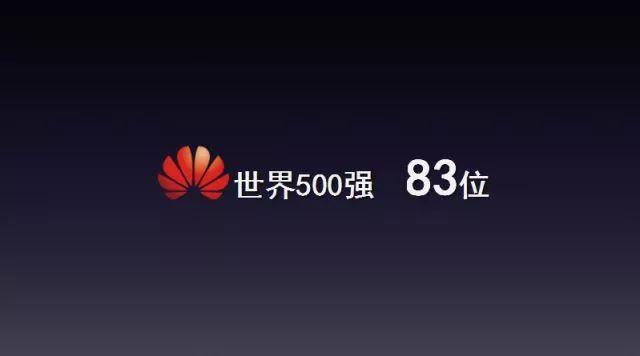
IV. Insurmountable Optimism
At the beginning of its founding, Huawei encountered global competition at its doorstep. Its rivals are major Western companies with strong capital, good technology, century-long management, and abundant talents. Huawei, as a private enterprise in a complete sense, I call it For a small grass, it is in absolute asymmetry with the other party. Huawei has achieved rapid growth and has also suffered one after another suffering and setbacks. However, its leader Ren Zhengfei is an extremely hopeless optimist.
Some time ago, Wu Xiaobo, a well-known financial writer, wrote an article "Ren Zhengfei's Skeptical Personality", arguing that Huawei is a "pessimismist victory," and I dare not share this understanding: anyone with a skeptical personality, he can Being a poet or writer can be a variety of people, but it cannot be an organizer. Qualified, excellent organizational leader He may be sensitive to personnel, but the personality tone must be optimistic, upward, and even passionate, they are more like the sun, in the crowd is always heat, but maybe a little less moon Soft light...
The strong optimism that Ren Zhengfei has publicized is a very important ethos for bringing Huawei from small to large and weak to strong. Of course, this ethos is also fully extended and penetrated into all aspects of Huawei.
Fifth, embrace the system, embrace the rules, embrace the process
The above five points are the basic characteristics of Huawei's early entrepreneurial groups. Of course, this also constitutes the collective spiritual quality of Huawei's top leaders. This is a very good organizational temperament that is unique and must be maintained for a long time.
Today, Huawei has 180,000 employees. The 180,000 employees and the entrepreneurs of the early years naturally formed a cultural genetic link. They are also small individuals, but they are 180,000 people who are ambitious. Among the 180,000 employees, there are 165 nationalities and more than 40,000 foreign employees. This is a group of heroes formed by these little people. In the past 30 years, it has created a world-shattering history of the global communications industry.
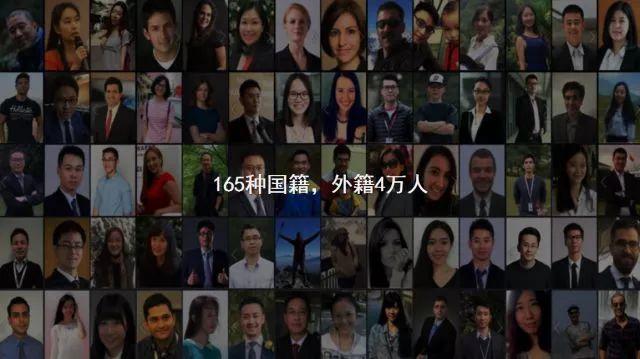
Next, I want to use five kinds of power to share with you how Huawei's small group of people has created a big history.
The power of the will
It is difficult to imagine that if Huawei's leaders, managers at all levels, and tens of thousands of ordinary employees do not have strong and powerful willpower, Huawei can successfully come to this day.
In 2002, I took my appointment to Xi'an and walked to the lake in the morning and took a walk. Ren Zhengfei said, “Huawei’s internationalization has been eight years. In eight years, the war of resistance has been successful. We have been defeated and defeated forever. I can't see the light yet." When he said these words, the tears in his eyes were spinning, and his voice was sobbing...
In early 2000, Ren Zhengfei went to Johannesburg in South Africa to visit the Memorial Hall of the Ancestors. He walked out of the memorial hall and received a phone call. He was crying in the small square in front of the memorial hall for nearly two hours. The history of the ancestors of South Africa was a The history of blood and tears, and how does Huawei's globalization not be?
Ren Zhengfei is a very emotional old man. He is not the kind of man who has tears, but he often cries. However, he is also a very rough and rare-willed warrior. The tireless veteran of the chicken blood! Undoubtedly, this has something to do with his will, but I think it is more of a support for mission consciousness - a sense of national mission, a sense of industry mission, a way to bring Huawei. Human Sense of Mission to the World Stage.....

When I visited the Memorial Hall of the First Ancestors, the most important thing that touched me was the large number of versions of the Bible. It was the strong spiritual power and willpower that supported the ancestors and allowed them to survive. Similarly, if Huawei does not have Ren Zhengfei, including a group of early entrepreneurs and 180,000 Huawei people that kind of strong sense of mission and willpower, it is difficult to come to this day.
Our theme is called the “Growing in the Guns, Rain, and Rain†tour lecture. Gun Lin Blasting is both a kind of fighting spirit, adventure and pioneering spirit, and there are real bullets, the Iraq War, the Libyan War, and the Afghan War... It was Huawei who left and maintained the equipment. In the face of many natural disasters during the earthquake and tsunami, Huawei chose to stick to it. Why? It is very simple. People at the time of crisis are most likely to have a smooth communication and be able to report peace to their loved ones.
The coldest Antarctic and Arctic in the world, Everest with the highest altitude, jungles and deserts in Africa, and the most ridiculous areas... People enjoy the most convenient communications facilities provided by Huawei and provided by Huawei. Service support.
Therefore, a history of Huawei's pioneering and adventurous history and a history of Huawei's global expansion are behind the powerful spiritual power and willpower.
The power of innovation
In the past 30 years, Huawei has not done an inch of real estate and has not done any diversification. The long-term adherence to information technology R&D and product development has created Huawei’s position as a leader in the global communications industry.
Of the 180,000 Huawei people, nearly half are engaged in research and development. It can be said that “one of two people has a R&D person.†It is by far the largest R&D team in the world. Huawei builds capacity centers in dozens of countries around the world, from Israel to the United Kingdom, France, Italy, Sweden, the Netherlands, Ireland, Russia, Japan, Canada, and the United States. Of course, China’s home country is also a strong city.
The world’s 15 largest institutes have a minimum of 1,000 people and more than 10,000 people. The more than 80,000 R&D teams all over the world have always kept a close eye on the main channel to ensure that Huawei does not consume strategic competitiveness at non-strategic competition points.
In the past 29 years, Huawei’s R&D expenditures reached RMB 308.9 billion (more than RMB 80 billion is expected in 2017). Since its inception, Huawei has long insisted on investing more than 10% of its sales into R&D. He said that "below 10% I am going to be beheaded."
In the past 29 years, Huawei had two indicators that were higher than profits for a long time:
1, R&D investment is more than 2 times longer than profit.
2, human resources investment. The average annual income of Huawei employees, including salaries, bonuses + benefits, is three times that of shareholders.
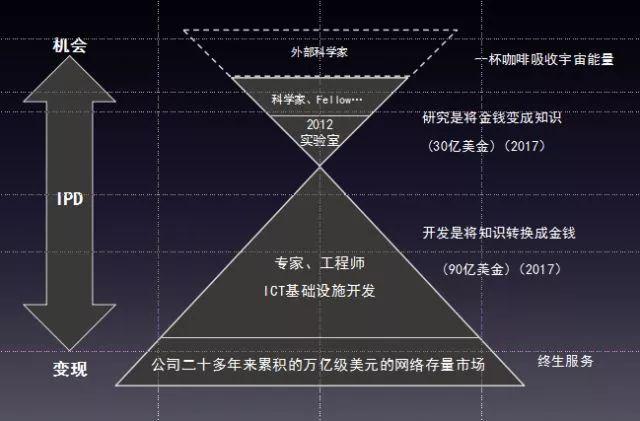
This map represents Huawei's R&D structure today and in the future. The above small triangle is the process of turning money into knowledge. The dotted line is mainly to cooperate with external scientists in the same direction as global universities and research institutions.
Huawei cooperates with laboratories and professors in more than 200 universities worldwide. It also requires that scientists and experts of the company must take one third to one half of the time each year to drink coffee around the world, and a cup of coffee absorbs the energy of the universe. . Such exchanges do not have borders.
The 2012 laboratory represented Huawei’s own basic research, which is approximately 30,000 people. It is these large groups of experts that have made borderless ideas and directions for external coffee.
At the same time, the Standing Board of Directors stipulated that 30% of annual research and development funds should be invested in basic research. Last year, R&D investment was 11 billion U.S. dollars, nearly 3 billion U.S. dollars for basic research, and basic research also allowed for high failure rates.
The standing board also issued a document specifically stating that everyone should pay for coffee or give a gift, which is in fact "pricing" the person's brain.
In order for Chinese science and technology research to have more outstanding achievements, it is very important to dare to let go of the brains of scientific researchers and set a high price. Huawei always upholds the value logic that gives intellectual workers a better price than the pricing of their shareholders.
The following big triangle is Huawei's product development system. The small triangle transforms money into knowledge, while the Grand Triangle transforms knowledge into money. The small triangle allows and encourages mistakes, risks, and failures, but the Grand Triangle requires the greatest success rate and the lowest failure rate in mature processes and institutional systems.
The bottom pedestal is Huawei's trillion-dollar online stock market worldwide, which is invaluable. Huawei's artificial intelligence uses Ren Zhengfei's statement as his own dog food to eat. Where is the first application? Applied to the trillion-dollar network stock market.

Over the past few decades, Huawei has formed a strong dual tension in R&D and marketing. The underlying philosophy is: Mikania micrantha strategy. Mikania micrantha is a kind of wild grass in South America. It needs only a small amount of water and nutrients, and can quickly cover all the surrounding plants, including trees and weeds, and suffocate them. This is a kind of weed that scientists have called the rapid expansion of 1 mile per node at every minute... This is the spirit of Mikania and the Mikania micrantha strategy behind Huawei's rapid growth. It represents Huawei’s cultural and organizational competitiveness.
However, this may also be a "choosing of Achilles" by Huawei. Three years ago, at the International Communication Exhibition in Barcelona, ​​I had an exchange with a British gentleman. He first discussed the Ukrainian crisis. Then he talked about Spanish bullfighting. The gentleman said something meaningful, "Don't be led by teasing red cloth."

The competition between enterprises and enterprises is important, but not the most important. Huawei is able to develop today, not to compete with competitors, but to target customers. Customers are the only root of Huawei's presence, growth, and growth. If Huawei positions its relationship with its competitors as dead or alive and you have not me, it will not only mutate and distort the pursuit of value, but it will also put Huawei in danger, just as Ren Zhengfei said in 2009, in the event that Huawei Hitler, Genghis Khan, it was a dead end.
Therefore, on the one hand, Huawei emphasized that the entire organization must have strong fighting power and offensive power, but at the same time, it also strategically held high the banner of cooperation. Huawei was the first to define competitors as "friends."
A few years ago, Ericsson’s president said, “If Ericsson’s beacon is extinguished, Huawei will not see the future.†Ren Zhengfei’s answer is: “We must erect a Huawei signal tower on the other side, but we also cannot let Ericsson. The great and respectable companies such as Nokia have crossed, and we are happy to see the coexistence of multiple towers, and we all face the future of uncertainty."
In 2014, the European Union had launched an anti-dumping investigation against Huawei. As a result, Ericsson and Nokia came out against it and endorsed it for Huawei: Huawei did not dump at a low price... But even so, Ren Zhengfei would say, I surrender with both hands. I was born to be a capitulator. We want to raise the price of Europe further...
Do you use Huawei mobile phones today? The price of Huawei mobile phones you buy in China is 15%-20% lower than in Europe. High-priced sales of high-quality products in Europe will certainly leave room for growth and common growth for competitors.

The power of rules
Huawei can have its market and R&D layout in more than 170 countries and regions around the world. It is very important that Huawei has a global standard in terms of enterprise systems and process systems.
When Huawei's sales amounted to 10 billion yuan, Ren Zhengfei once asked the officials at the general meeting: Who is the company that has managed 10 billion yuan in sales? All people do not say anything, old ones, I do not have, what to do? Honestly learn from the West and learn from the United States.
Since 1996, consultation fees paid by various consultants paid by Huawei to the United States for the past 20 years, including Germany, Japan, and the United Kingdom, have reached billions of dollars. However, it was these billions of dollars that were invited. The best teacher in the world, and of course, the most important teacher is IBM, and helped Huawei to establish a system and process system in R&D, supply chain, finance, human resources, and markets, which laid a strategic foundation for Huawei to move toward the world.
British Telecom (BT) is a very picky company. Some people say that they obtained BT's certification and they have obtained tickets to enter any company in the West. In 2001, due to the global IT bubble, BT wanted to find a relatively inexpensive company in Asia to cooperate with Japan. It did not find a suitable one in Japan, went to China to read a company, left for half a day, and then went to Huawei.
What is Huawei's deep impression on British Telecom's certification experts? IBM's ongoing R&D system change at Huawei, the IPD revolution.
They stayed, and they backed up at Huawei for several months. 13 major certification standards, including one very harsh "human rights certification." At around 10 o'clock in the evening, the experts did not say hello to the staff quarters and asked you to work overtime. Said to work overtime. Then asked, did overtime pay? How much did you give? Then on the second day, China’s Labor Law was compared. The final score for Huawei's certification is 3 points (5-point system), and then Huawei's upstream supplier must also be certified. I went to Shenzhen and went to a few factories. Then I said that you have failed to provide protection for the rights of the upstream merchants and requested that you correct them within a time limit.
Some Huawei employees accompanied by BT's certification at the time were emotionally inconsistent. They also included later Softbank's visit to China for authentication. They felt even more emotionally resistant, saying that they looked at us with colored glasses...a hundred years The history of China's humiliation has been branded in our hearts and we have become very sensitive.
Later, an expert certified by British Telecom and Huawei were drinking at night and said with confidence: "If I ignore this item in you, we will use your equipment. When I return to the UK, I will be attacked by the British media.... ..".

It was Western companies including IBM, BT, and Softbank of Japan that once gave Huawei great opportunities to see, change, and restructure the organization from the customer's point of view, just as Ren Zhengfei said, “The IBM Church How did we climb the tree? This created Huawei's scale growth and good structure in the global market, including all developed countries.
As the world becomes more volatile and uncertain, how can it respond? Huawei's guideline is to deal with global political and economic uncertainties with the certainty of rules. The specific meaning behind this is that we must abide by the laws of the United Nations and abide by the laws of the countries in which we are located. In sensitive areas, we must even regard the United States law as international law.
The power of values
Huawei is able to rapidly expand from 30 years into a global industry leader from a “big four†(small capital, no technology, no talent, no management) small company and weak company. It is fundamentally the traction and effectiveness of core values. Landing.
Huawei's core values ​​include three sentences: customer-centric, and striver-oriented, and persist in arduous struggle.
On the surface, these three sentences are bland, but behind every sentence there is profound connotation. For 30 years, Huawei has never shaken the soul of the customer. Ren Zhengfei is a thought leader who is good at using speeches and communicating in a subtle way to influence the company. Over the years, Ren Zhengfei’s remarks should have tens of millions of words. You will find that there is always old-fashioned knowledge: Customers are the only reason for the existence and development of Huawei, and customers are fundamental to Huawei's growth and strength.
It is precisely because of the first point that Huawei’s western competitors have been declining in the tug of war in the past decades. Motorola and other US and European companies, who used to be customer-centric, eventually turned to capital as the center and shareholder as the center.
Second, is the most fundamental engine of development and the most persistent engine in the company? Is it capital? Huawei believes that the biggest driving force for the long-term development of enterprises is employees and workers. Striving to create Huawei, labor created the world.
Over 20 years ago, Huawei clearly and clearly stated in the "Basic Law" that employees should have value distribution before and after the shareholders in the enterprise. The history of human organization is essentially the history of value creation and value distribution. In the past years, Huawei has achieved a relatively effective balance between value creation and value distribution. But in this balance, there is a theoretical basis: based on the struggler. The core idea based on the struggler is: talent hires capital. In today's era of excess capital + knowledge economy, talent is the largest competitive resource for companies and countries.
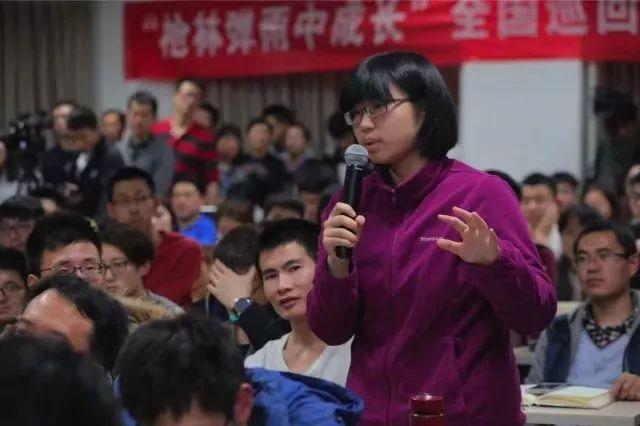
In the past 29 years, the founders and senior management teams have continuously diluted their own shares. Today, Zhengfei holds only 1.4% of the shares, and the remaining 98.6% of the shares are held by over 90,000 employees, and there are no external financial shareholders. It is everyone who is the boss and they fight the world together. However, this does not fully comply with Huawei's value concept. Huawei's value concept is based on the struggler.
In the previous year, Zheng Fei and the young cadre class discussed and asked a young grass-roots executive next to him. If the shareholders take a little more, do you support it? Ren Zhengfei said that if I want to think for myself, I certainly should support shareholders to take a little more, because I am the largest shareholder, but you are not stupid, do you still go to pull the car? For many years, Huawei has insisted The 3:1 benchmark continuously adjusts the value distribution of employees and shareholders.
Long-term adherence to hard work. There is no future for the non-fighting peoples, and there is no future for individuals who do not fight. Undoubtedly, enterprises that do not work hard have no future. Dai Jin's wings are incapable of flying. There is the book "The Empire is not over." It tells the history of the British Empire's global expansion. Some of the middle paragraphs made me extremely shocked. In the mid-eighteenth century, the British Empire had hundreds of thousands of people and millions of people visiting the world every year. Extending soil, many countless people fall ill or even die each year on the road of adventure and conquest, but it is the spirit of struggle of the whole nation that created the dynasties. Today, when we go to Europe, we experience the afterglow of the sunset. The fundamental point is that the welfarist culture continues to erode the prosperity and development of Europe.

Critical force
The core values ​​are the flag of Huawei and the core concept that leads Huawei to grow and develop. The system and process system built on this concept guarantee and advance Huawei’s continued success, but any good idea, good system, they will As time and space are dissimilated, they mutate. Therefore, Huawei must persist in self-criticism for a long time. The struggle will bring prosperity, the prosperity will be corrupt, and the prosperity will be prosperous. Huawei must step out of this cycle of history. Opening this dead knot with a scalpel is self-critical.
Over the years, Huawei has continuously conducted and persisted in self-criticism, constantly correcting its own cultural coordinates and concepts without distortion or distortion. I call this self-criticism a killer program.
Huawei's self-criticism has many traditional practices and innovations, such as the internal voice community of Huawei, which I believe is an important innovation experiment for corporate democratic governance. Most of the company’s major and non-material policies and decisions, including the speeches of its bosses, were addressed on the internal website at the first time by senior executives at all levels, allowing 180,000 employees to comment on their opinions, and the posters could use real names or wear them. In the waistcoat, no one is allowed to follow the post....
Of course, the comments are in favor of, criticized, and some of the criticisms are very sharp and even extreme. However, under the supervision of 180,000 people and extensive democratic participation, Huawei can still maintain a relatively healthy and progressive organizational culture on the whole. 18 Ten thousand people’s large organizations still have strong vitality and cohesion.
What is more important is that senior executives at all levels are placed in the atmosphere of democratic supervision. At the same time, the company has also absorbed a large amount of ideological nutrition and many valuable opinions and suggestions from employees' thread. Ren Zhengfei said that what I saw in the thread was "to shine the stars." "Sound of the community" is Huawei's transparent coat, but also Huawei's democratic Roman Forum.

According to an external commenter, the current Huawei is Ren Zhengfei’s self-awakening against the huge bureaucratic machine. Obviously, the author neither understands Huawei nor overestimates the “leadership†and “energy of the leader†in the process of change. I have exchanges with many Huawei executives, grassroots officials, and general employees. Their speeches are full of anxiety and anticipation, as well as enthusiasm to support and embrace change. This has been the case for more than 20 years. Today, it is even more so in the community. It is particularly common and obvious.
"Fear is the greatest motive force for change." If an organization does not have a sense of crisis and there is no awareness of external and internal challenges, the organization's senior leadership groups have no deep and dynamic insights into human nature and humanity. This organization has succeeded. It will also decline. For Huawei, this is both a reality and a wake-up call for the future.
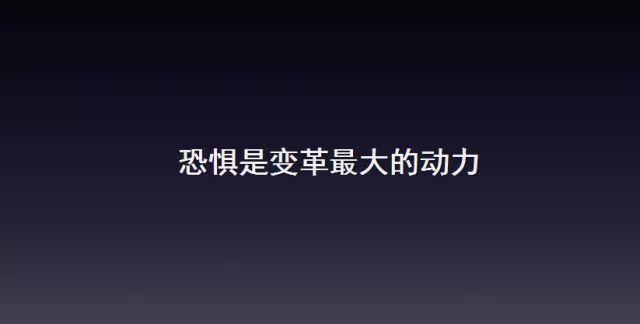
Conclusion
Prof. Tian’s sincere and philosophical lectures were exchanged. Not only did the students at Beibei University have a full harvest, but the students also felt the universal value of penetrating humanity. There was a real goal for everyone’s pursuit, growth, and fulfillment of their life goals. In the help.